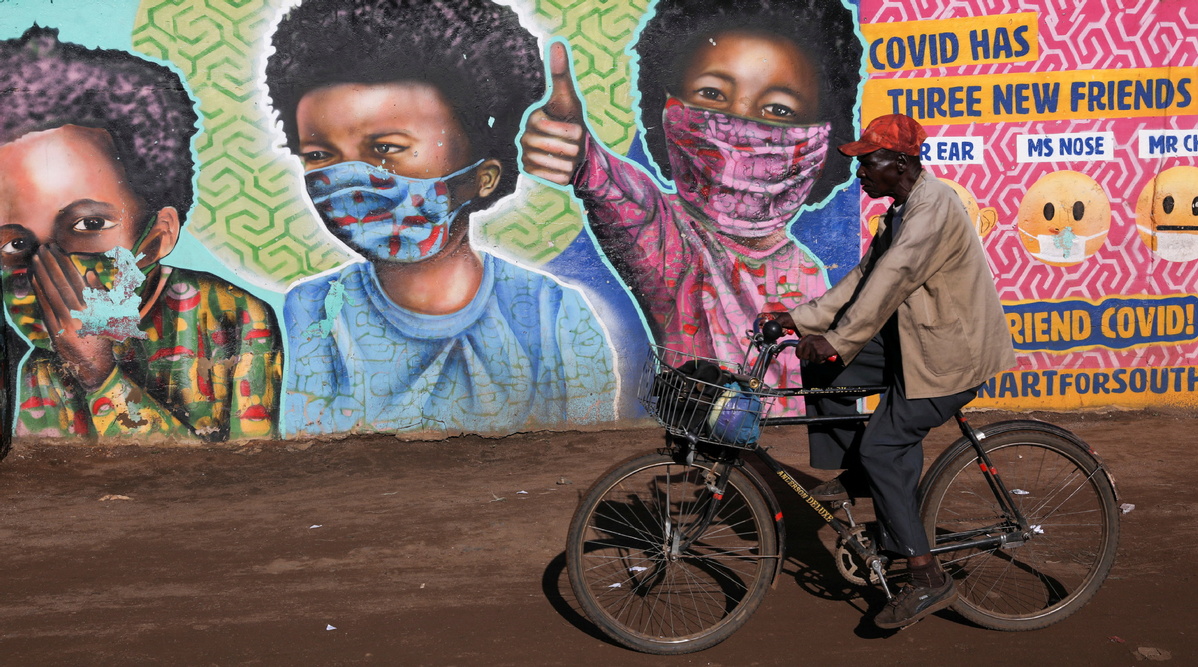Africa moving toward control of virus


Almost two years after Africa identified its first COVID-19 case on Feb 14, 2020, the continent is on track to end the disruption caused by the pandemic this year, said a senior official of the World Health Organization on Thursday.
"Although COVID-19 will be with us for the long term, there is light at the end of the tunnel. This year, we can end the disruption and destruction the virus has left in its path, and gain back control over our lives," said Matshidiso Moeti, the WHO's regional director for Africa, during a virtual news conference, while noting that continued vigilance is key.
Over the last two years, the continent has witnessed four waves of COVID-19, each with higher peaks or increasing numbers of new cases than the previous wave.
"Against the odds, including huge inequities in access to vaccination, we've weathered the COVID-19 storm with resilience and determination, informed by Africa's long history and experience with controlling outbreaks," said Moeti. She added that great improvements were made in Africa's capacity to keep the pandemic under control.
Since the start of the pandemic, Africa's capability to manage COVID-19 cases has gradually improved, with increased availability of trained health workers, oxygen and other medical supplies.
Despite the improvements, the WHO warned that oxygen availability remains a concern and a large majority of patients who require oxygen as part of their treatment plan are unable to access it.
"As we enter this new phase of the COVID-19 pandemic, we must use the lessons learned over the past two years to strengthen our continent's health systems so that we are better prepared to handle future waves of the disease," Moeti said.
To date, around 672 million COVID-19 vaccine doses have been received in Africa.
Though there is a steady supply of doses flowing in, Moeti said Africa still lags behind on vaccinations, as only about 11 percent of the adult population are fully vaccinated.
Moeti said vaccine uptake, which is the "best defense" against the virus, needs to be "urgently" accelerated across the continent.
"We need to maintain the groundswell that we're now seeing in support of local manufacturing of vaccines, therapeutics and diagnostics. Increased access, and affordability, is the only solution to the vaccine inequity witnessed since the start of this pandemic,"Moeti said.
According to the World Bank, the pandemic is estimated to have pushed up to 40 million people into extreme poverty in Africa.
Additionally, every month of delay in lifting containment measures is estimated to have cost Africa $13.8 billion in lost gross domestic product.
Xinhua and agencies contributed to this story.
































